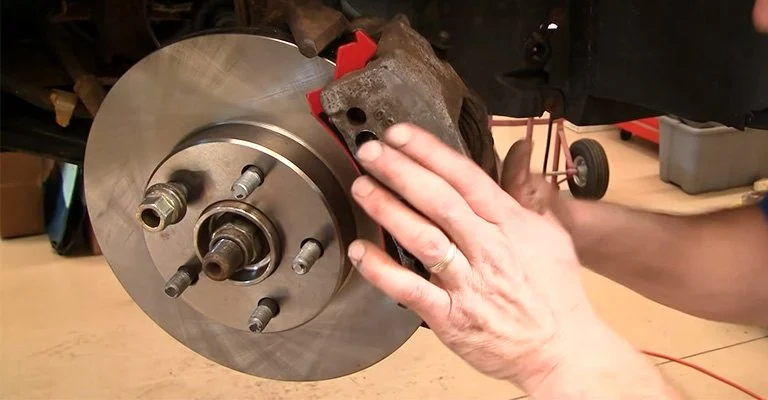
How to Fix Brake Calipers That Rub the Rotor
- 1. Introduction to Brake Calipers and Rotor Issues
- 2. Signs of Brake Calipers Rubbing the Rotor
- 3. How to Fix Brake Calipers That Rub the Rotor
- 4. Preventing Brake Caliper Rub in the Future
- 5. When to Seek Professional Help
1. Introduction to Brake Calipers and Rotor Issues
Brake calipers are an essential part of your vehicle's braking system, applying pressure to the brake pads to slow down or stop the car. However, when they rub against the rotor, it can lead to a variety of issues including excessive wear, poor braking performance, and unwanted noise. If you've noticed grinding noises or vibrations when braking, it's important to address the issue immediately. In this guide, we'll explain how to identify and fix brake calipers that rub the rotor, so you can keep your vehicle running safely and efficiently.
2. Signs of Brake Calipers Rubbing the Rotor
If your brake calipers are rubbing the rotor, you may experience the following symptoms:
- Grinding or squealing noise: This is one of the most common signs of calipers rubbing against the rotor. The sound is caused by metal-to-metal contact between the caliper and the rotor surface.
- Vibrations or pulsations while braking: If you feel vibrations or pulsations in the brake pedal, it may indicate uneven rotor wear caused by rubbing brake calipers.
- Reduced braking performance: If the calipers are not properly aligned, they may not apply enough pressure to the brake pads, leading to reduced braking efficiency.
- Excessive heat buildup: Rubbing calipers can generate excess heat, causing the rotor to overheat and wear out prematurely. You may notice a burning smell or discoloration on the rotor surface.
3. How to Fix Brake Calipers That Rub the Rotor
Fixing brake calipers that rub the rotor requires some technical knowledge and tools, but it's a manageable task if done correctly. Here’s how to fix it:
- Lift the vehicle: Use a jack to lift the vehicle and secure it with jack stands. Always ensure the vehicle is on a flat surface and the parking brake is engaged.
- Remove the wheel: Once the vehicle is securely lifted, remove the wheel to gain access to the brake components.
- Inspect the brake calipers and rotor: Look for any visible signs of damage or uneven wear on the brake calipers, pads, and rotors. If you notice any cracks, grooves, or deep scoring on the rotor, it may need to be replaced.
- Check for caliper misalignment: If the calipers are rubbing the rotor, they might be misaligned. Check the caliper bracket for proper alignment, and ensure that the caliper slides freely on its pins.
- Adjust or replace parts as needed: If the caliper is misaligned, loosen the mounting bolts, reposition the caliper, and tighten the bolts. If the pads or rotor are worn down, replace them before reassembling the brake system.
- Lubricate the caliper pins: Apply lubricant to the caliper pins to ensure smooth operation. This can help prevent future rubbing and reduce friction.
- Reassemble and test: Once you've made the necessary adjustments or replacements, reassemble the brake system and test the brakes to ensure they are functioning properly. Look for any signs of rubbing and listen for unusual noises.
4. Preventing Brake Caliper Rub in the Future
To avoid future issues with brake calipers rubbing against the rotor, follow these preventive measures:
- Regular brake inspections: Make it a habit to inspect your brake system periodically, especially if you're experiencing any braking issues. This can help catch potential problems early.
- Ensure proper brake pad wear: Worn brake pads can cause the calipers to sit improperly and rub the rotor. Always replace your brake pads before they become too thin.
- Use quality brake components: Invest in high-quality brake pads, rotors, and calipers to reduce the risk of damage and ensure long-lasting performance.
- Proper caliper maintenance: Ensure the caliper slides and pins are lubricated and functioning correctly. This can help prevent binding or misalignment that could cause rubbing.
5. When to Seek Professional Help
While fixing brake calipers that rub the rotor can be a DIY project for some car owners, it’s important to know when to seek professional help. If you're not confident in your ability to make the repair, or if the problem persists after attempting a fix, it’s best to consult a mechanic. A professional can thoroughly inspect the brake system, identify underlying issues, and ensure that the repair is done correctly for optimal safety.
By following these steps to fix brake calipers that rub the rotor, you can restore your braking system to its full potential. Regular maintenance and careful attention to your brake components will keep your vehicle running smoothly and safely. For more tips on bike maintenance and repair, visit Cycling Guider.



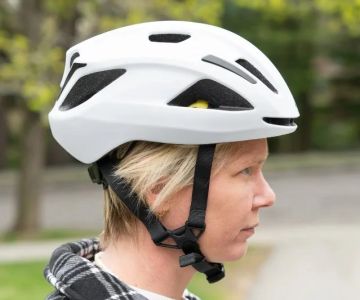


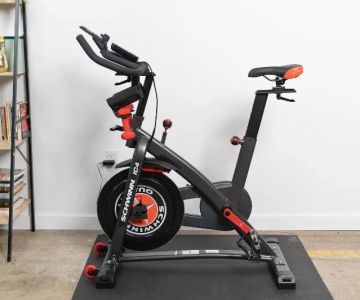
 Trek Bicycle Albuquerque4.0 (916 reviews)
Trek Bicycle Albuquerque4.0 (916 reviews) Trek Bicycle Orlando College Park4.0 (485 reviews)
Trek Bicycle Orlando College Park4.0 (485 reviews)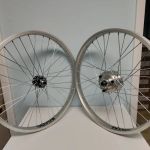 Gemini Bicycle Products0.0 (0 reviews)
Gemini Bicycle Products0.0 (0 reviews) Konocti Bicycles4.0 (21 reviews)
Konocti Bicycles4.0 (21 reviews) Chucks Bikes5.0 (103 reviews)
Chucks Bikes5.0 (103 reviews) Surf-Wheels 'n E-Bikes4.0 (188 reviews)
Surf-Wheels 'n E-Bikes4.0 (188 reviews) How to Teach Kids to Ride a Bike: A Step-by-Step Guide for Parents
How to Teach Kids to Ride a Bike: A Step-by-Step Guide for Parents Tips for Riding on Busy City Streets: Smart Strategies for Urban Cyclists
Tips for Riding on Busy City Streets: Smart Strategies for Urban Cyclists Best US National Parks for Mountain Biking: Ride Epic Trails Across America
Best US National Parks for Mountain Biking: Ride Epic Trails Across America Best Aero Helmets for Time Trials and Racing
Best Aero Helmets for Time Trials and Racing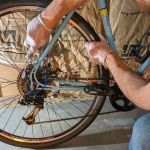 How to Clean and Lubricate Your Bike Chain Like a Pro
How to Clean and Lubricate Your Bike Chain Like a Pro 10 Must-Have Items for Long-Distance Cycling Trips
10 Must-Have Items for Long-Distance Cycling Trips